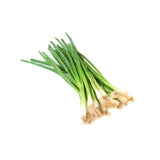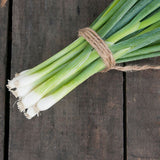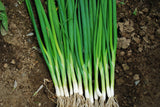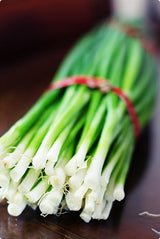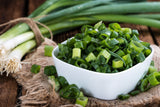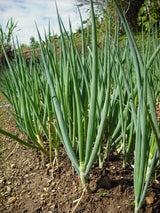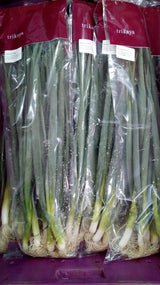Bunching Onion, Japanese
Bunching onions are a scallion and never form a bulb and have hollow leaves. The leaves are prized when cooking unlike the more difficult leaves of the spring onion. Other names for Bunching Onion are Welsh Onion and Long Green Onion.
Both the white and the green parts are used in recipes and eaten both raw and cooked. These fresh young onions are identified by their slender shape and mild flavor. The white stalk has the same sharp, onion taste though with less bite, while the dark green leaves have a fresher, grassy milder flavor.
A popular ingredient in Asian cuisine, especially in East and Southeast Asia. It is particularly important in China, Japan, and Korea, even more than the bulb onion so common elsewhere. In the West, bunching onion is primarily used as a scallion or salad onion.
Scallions are mild enough that both the whites and the greens can be eaten raw, as in scallion salad, a popular side dish for Korean barbecue, or as a crunchy garnish for soups, and chili, and potato puree. Raw scallion whites and greens can be pickled whole or fermented in kimchi. Whole scallions are delicious grilled or roasted—the leaves become charred and the the whites tender and sweet.
Many stir-fry recipes call for separating the whites and the greens. This method mellows out the sharp flavor of the bulb, while allowing the raw greens to stay fresh as a garnish. An added bonus? The scallion whites are usually the first ingredient in the wok, infusing the cooking oil with their aromatics and flavoring the rest of the stir-fry.
The Japanese selections are especially prized for their flavour.
Note: Images are only for illustrative purposes, actual product and colour may slightly differ.

